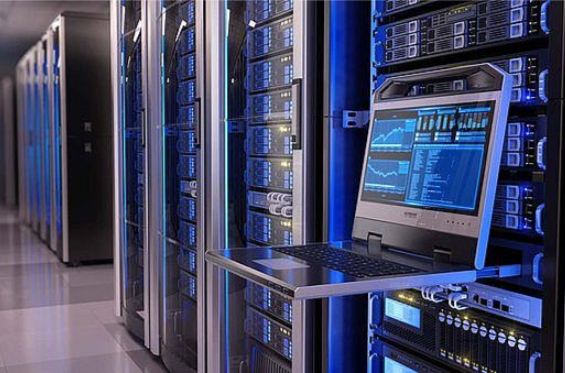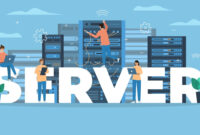Dedicated servers present an excellent option for those seeking optimal performance for their online ventures, applications, and platforms. With a dedicated server, clients benefit from the superior resources of a premium data center while having exclusive access to the entire server without sharing it with others.
However, selecting dedicated server hosting comes with its own challenges. Since you are renting the complete server, you also take on the responsibility of configuring it, troubleshooting issues, and more. This implies that you need to consider a significantly different set of criteria compared to when choosing standard web hosting or a cloud service. Here are several factors to keep in mind when selecting dedicated server hosting.
Operating System Options
The initial step in the setup process isn’t configuring the hardware; it’s selecting your operating system. Some providers might offer pre-configured solutions, while others allow you to choose and install your preferred OS. In either scenario, additional costs for the operating system and any necessary software may arise.
Determine whether a Windows Server or a Linux OS would be more appropriate for your needs. Also, consider which other software platforms you plan to utilize. Taking these factors into account first will enable you to select the most compatible dedicated server. Otherwise, you risk obtaining a server that fails to properly run your software or does so inefficiently.
Hardware Considerations
Since you are leasing the complete server, you can influence the choice of hardware. Many providers offer a selection of options. For instance, Takeaserver.com features over ten configurations specifically designed for various applications and budgets, as well as the option for custom configurations.
Before renting, ensure you clearly understand the purpose of the dedicated server. Will it be responsible for managing large databases? Or will it perform intensive data processing? How many users will access it? What is your required storage capacity? What bandwidth is available? Additionally, investigate the options for future server upgrades or configuration changes.
Extra Features
These depend primarily on how you intend to utilize your dedicated server. If you’ll be hosting a website, you’ll need a platform such as cPanel & WHM, which are suitable for Linux operating systems.
Certain providers may also offer enhanced security features like DDoS protection and more. These can often be added to your dedicated server with a few clicks (prices may vary depending on the service). Ensuring malware protection is also crucial. Since you plan to use your dedicated server for commercial purposes, prioritizing security is of utmost importance.
Furthermore, check whether you’ll receive additional features such as IPMI access, RAID, redundancy, and more. These may only be available with specific plans and might be offered separately for others, depending on the providers.
Don’t Ignore Support
This is an area where one service provider can significantly outperform another. While the concept of a dedicated server implies “you rent it, you manage it,” not all providers share this perspective. Some offer supplementary technical support, which can range from simple uptime or bandwidth monitoring to more advanced operations and troubleshooting. These services usually come with additional costs.
Also, take note of when you will actually receive your dedicated server. Certain providers might take several days to prepare everything for you, which can be frustrating. On the other hand, some can deliver their standard configurations within minutes of your payment, allowing you to start working right away. Keep in mind that delivery times for specific custom configurations will vary.
Here are three important features to consider when evaluating whether the dedicated server hosting provider you’re looking at is truly capable of meeting your needs.
1. Hardware – Inspect the Equipment and Understand Its Capabilities
You’re seeking dependable dedicated server hosting because your organization’s demands have exceeded what shared hosting can offer. You require exceptional performance to handle significant traffic volumes and absolute reliability, even during crises. Ensure that your provider possesses the necessary physical hardware to fulfill their claims of performance and uptime. Look for a provider that can supply enterprise-level HDDs or SSDs in a location that minimizes delays for your clients or target audience. Don’t hesitate to inquire about specifics:
- Does the provider support multiple operating systems (at least Windows and Linux) to cover your current and future requirements?
- What level of RAM/CPU power can they provide? Do they offer options with GPUs or NVMe? This might not be crucial for smaller, static websites, but it can be vital if you’re dealing with high-demand dynamic sites that put a heavy strain on your server. Seek out third-party benchmarks or request a trial to evaluate performance yourself.
- Do they guarantee bandwidth availability? Even dedicated servers can face slowdowns under heavy loads if the connection isn’t adequate. Ask about the guaranteed availability of bandwidth and whether there are any caps.
- What is the maximum uplink port speed available? If your uplink port speed is inadequate to handle your site’s traffic demands, it could create a bottleneck, causing slow load times for visitors. Some providers set a standard speed, while others provide upgrade options. We offer speeds up to 10Gbps.
2. Cost and SLAs – Clarify What’s Included in the Pricing
We’ve already noted that cost doesn’t automatically represent value, but that doesn’t imply that your clients or company will disregard expenses. The key is to ensure you’re receiving the best value for your investment, regardless of the final amount agreed upon. Be sure to examine the details:
- SLAs: What is covered in your agreement? What occurs if your server fails unexpectedly? Guarantees for hardware replacement can protect you when issues arise.
- Contract Fees: Will you be committed to a contract with this provider? For what duration? If you need help with setup or migration, could that result in additional charges on your bill?
- Extra Costs: What other hidden fees might a less-transparent provider impose? Verify if there will be additional costs for backup or recovery services, scaling, software licensing, training, or support services, and account for those in the overall price.
3. Support – Verify If They Will Be Available for You
All hosting providers will gladly engage with you during your search for new service. Your questions will be promptly answered, and no request will appear too challenging. The real test arises when you’re in need of help during critical times.
A clear sign that you’ve located a reliable dedicated server hosting provider lies in their support structure. If they’re ready to assist you when—rather than if—issues occur, you won’t be left scrambling to explain to clients why their sites aren’t functioning properly. Investigate whether the provider you’re considering has any of the following support assurances:
- 24/7 support: Standard business hours typically cover only one-third of the day, meaning that 66% of the time, support may be unavailable! Will you be able to contact your support team every hour of every day throughout the year?
- Rapid response times: Some providers promise round-the-clock support but don’t adequately staff support lines to handle call volumes, leading to possible delays of precious minutes (or even hours!) when you encounter problems.
- Local support team: How often have you called a support or customer service line only to communicate with someone far away, following a script of solutions you’ve already attempted without a genuine way to resolve your issue? Look for a team that employs knowledgeable technicians close to your server’s location, so you can expect practical assistance when you call.



